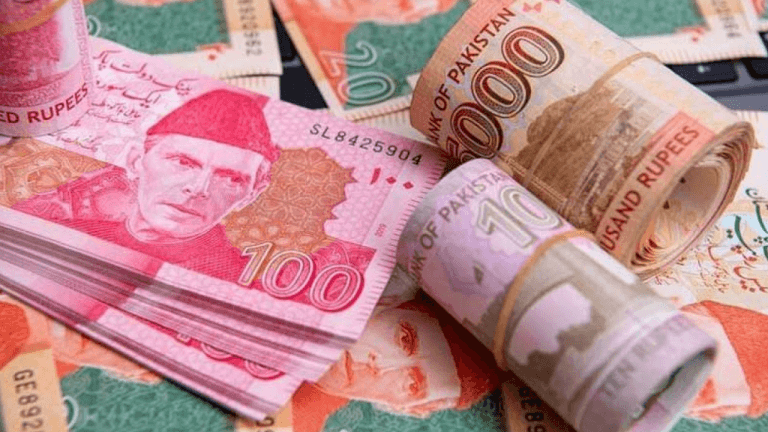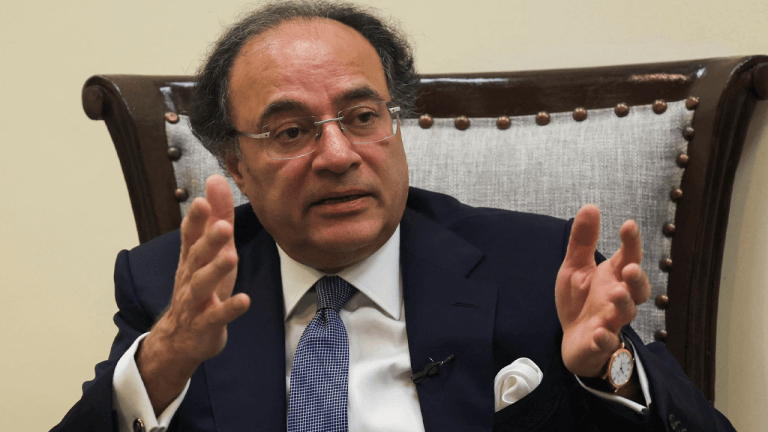 Pakistan is reportedly planning to develop a specialized electricity tariff regime for crypto mining and blockchain-based data centers. Pakistan Crypto Council Spearheads Initiative In a significant move, Pakistan is reportedly developing specialized electricity tariffs to attract crypto mining and blockchain-based data centers, further loosening its past stance on cryptocurrencies. This initiative aims to capitalize on […]
Pakistan is reportedly planning to develop a specialized electricity tariff regime for crypto mining and blockchain-based data centers. Pakistan Crypto Council Spearheads Initiative In a significant move, Pakistan is reportedly developing specialized electricity tariffs to attract crypto mining and blockchain-based data centers, further loosening its past stance on cryptocurrencies. This initiative aims to capitalize on […] Pakistan is set to legalize cryptocurrency and implement a regulatory framework to attract foreign investment, according to Bilal bin Saqib, the country’s newly appointed crypto advisor. With millions of Pakistanis already engaged in crypto, the government seeks to establish clear guidelines to support growth and innovation. Pakistan Moves to Regulate Cryptocurrency for Foreign Investment Pakistan […]
Pakistan is set to legalize cryptocurrency and implement a regulatory framework to attract foreign investment, according to Bilal bin Saqib, the country’s newly appointed crypto advisor. With millions of Pakistanis already engaged in crypto, the government seeks to establish clear guidelines to support growth and innovation. Pakistan Moves to Regulate Cryptocurrency for Foreign Investment Pakistan […] The newly established Pakistan Crypto Council aims to integrate blockchain technology and digital assets into the country’s financial system through clear regulations and innovation-driven policies. Finance Minister Muhammad Aurangzeb, serving as Chair, emphasized the government’s dedication to fostering a secure and progressive crypto ecosystem. The initiative reflects Pakistan’s proactive stance on positioning itself as a […]
The newly established Pakistan Crypto Council aims to integrate blockchain technology and digital assets into the country’s financial system through clear regulations and innovation-driven policies. Finance Minister Muhammad Aurangzeb, serving as Chair, emphasized the government’s dedication to fostering a secure and progressive crypto ecosystem. The initiative reflects Pakistan’s proactive stance on positioning itself as a […] The Finance Minister of Pakistan has named Bilal bin Saqib, a Web3 investor, as the chief advisor for the Pakistan Crypto Council. Bilal bin Saqib an Ideal Candidate Pakistan’s Finance Minister has appointed Bilal bin Saqib, a Web3 investor, as the chief advisor for the Pakistan Crypto Council. This appointment is seen as a step […]
The Finance Minister of Pakistan has named Bilal bin Saqib, a Web3 investor, as the chief advisor for the Pakistan Crypto Council. Bilal bin Saqib an Ideal Candidate Pakistan’s Finance Minister has appointed Bilal bin Saqib, a Web3 investor, as the chief advisor for the Pakistan Crypto Council. This appointment is seen as a step […] The Pakistani government has proposed amendments to the State Bank of Pakistan (SBP) Act to recognize central bank digital currencies (CBDCs) as legal tender. These changes would authorize the central bank to issue, regulate, and manage digital currency in both digital and physical forms. The amendments expand Section 24 to include digital issuance alongside traditional […]
The Pakistani government has proposed amendments to the State Bank of Pakistan (SBP) Act to recognize central bank digital currencies (CBDCs) as legal tender. These changes would authorize the central bank to issue, regulate, and manage digital currency in both digital and physical forms. The amendments expand Section 24 to include digital issuance alongside traditional […]

The proposed amendments would allow for sweeping changes to the country’s financial sector.
The State Bank of Pakistan (SBP) announced a package of policy proposals on Nov. 4 that, if accepted, would legalize digital assets such as cryptocurrencies as legal tender throughout the country.
In a meeting chaired by SBP governor Jameel Ahmad, the Monetary Policy Committee (MPC) reportedly submitted amendments to its standing policy that would allow state banks to issue digital currency. The proposed amendments would also impose penalties on digital currency issuers operating without approval.
While the proposals would still require approval at the next stage of government, if they were to pass it could pave the way for both a central bank digital currency (CBDC) — ostensibly a government-issued digital rupee.

The International Monetary Fund (IMF) is reportedly recommending the Pakistan Federal Board of Revenue (FBR) expand the scope of their gains taxes to include crypto. According to a report from the Pakistani news outlet The News, the IMF is asking the FBR to bring crypto gains into the country’s tax net. The IMF is asking Pakistan’s […]
The post IMF Demands $3,000,000,000 Bailout Debt From Pakistan Through New Crypto Taxes: Report appeared first on The Daily Hodl.
The policy framework showcases Pakistan’s willingness to integrate AI for public and national betterment. The country has set 15 targets with timelines ranging from 2023 to 2028.
Just days after announcing that cryptocurrencies will “never be legalized” in the country, Pakistan’s Ministry of IT & Telecom drafted a policy to spur the growth of artificial intelligence (AI).
With the national AI policy, Pakistan aims to evolve into a knowledge-based economy by upskilling human capital on AI and allied technologies among other investments and initiatives.
Draft National AI Policy (https://t.co/pZ516dmP8R)#MOITT believes in an inclusive approach for effective policy making. Please share your feedback through email (feedback.naip@moitt.gov.pk) so that the policy draft is updated in the best interests of citizens of Pakistan. pic.twitter.com/afbkyNuG11
— Ministry of IT & Telecom (@MoitOfficial) May 22, 2023
The policy framework showcases Pakistan’s willingness to integrate AI for public and national betterment. The country has set 15 targets with timelines ranging from 2023 to 2028. To support these initiatives, Pakistan intends to establish a National AI Fund by using the Ministry of IT & Telecom’s “underutilized resources and funds.”

Some of the intended use cases for AI in Pakistan include predicting the weather, agriculture supply chain optimization and health services transformation to name a few.
The Pakistani government has taken an inclusive approach toward building AI policies as it remains open to feedback from the general public till June 16th, 2023.
Related: Pakistan banks agree on blockchain-based KYC system development
The primary reason for Pakistan’s ban on cryptocurrencies was due to the requirements set by the Financial Action Task Force (FATF). In return, the country remains excluded from FATF’s gray list.
The officials has been destroying Pakistan in the name of #FATF & #IMF. Whatever happens in this country, according to the officials, it's either IMF's fault or FATF's.
— Crypto Pakistan (@Crypto_Pakistan) May 17, 2023
May ALLAH soften their hearts for the country and common man. Ameen pic.twitter.com/ymHJ2sqbb6
As Cointelegraph previously reported, while FATF does not have the authority to impose sanctions on non-compliant countries, it can likely influence government and corporate policies worldwide.
By complying with FATF, Pakistan holds a higher possibility of getting a bailout from the International Monetary Fund.
Magazine: Ordinals turned Bitcoin into a worse version of Ethereum: Can we fix it?
 China’s relationship with Saudi Arabia is growing as the country’s Cabinet has agreed to join the Shanghai Cooperation Organization (SCO). The diplomatic move made by the kingdom began with a memorandum of understanding in September, and at the end of March, Saudi Arabia’s Cabinet approved the decision to become a dialogue partner. The Cabinet’s decision […]
China’s relationship with Saudi Arabia is growing as the country’s Cabinet has agreed to join the Shanghai Cooperation Organization (SCO). The diplomatic move made by the kingdom began with a memorandum of understanding in September, and at the end of March, Saudi Arabia’s Cabinet approved the decision to become a dialogue partner. The Cabinet’s decision […] Tucker Carlson, host of Fox News and the “Tucker Carlson Tonight” show, analyzed the situation surrounding de-dollarization movements that countries like China and Russia have promoted recently. Carlson stated that sanctions on Russia and the weaponization of the U.S. dollar are partly to blame for the developments. Tucker Carlson Believes Sanctions Are to Blame for […]
Tucker Carlson, host of Fox News and the “Tucker Carlson Tonight” show, analyzed the situation surrounding de-dollarization movements that countries like China and Russia have promoted recently. Carlson stated that sanctions on Russia and the weaponization of the U.S. dollar are partly to blame for the developments. Tucker Carlson Believes Sanctions Are to Blame for […]